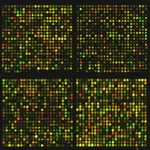
Do I Really Need a PhD to Work in Bioinformatics?
December 26, 2024Bioinformatics is an interdisciplinary field at the crossroads of biology, computer science, and data analysis. For many professionals entering this dynamic and fast-evolving industry, a common question arises: Do I need a PhD to succeed in bioinformatics? If you’ve been pondering this, you’re not alone. Let’s break it down and explore the latest trends, career guidance, and real-world experiences.
The Truth About Bioinformatics Careers Without a PhD
The short answer is no, you do not need a PhD to work in bioinformatics. Many professionals with master’s degrees, or even bachelor’s degrees, have thriving careers in this field. Here are some key takeaways based on real-life experiences:
- Entry Into the Field:
- A master’s degree (like an MSc in bioinformatics) combined with relevant skills (e.g., coding, data analysis, and machine learning) is often enough to land roles like Bioinformatics Scientist, Data Analyst, or Computational Biologist.
- Industry values experience, problem-solving skills, and technical expertise. If you can demonstrate your proficiency, a PhD is not mandatory.
- Career Growth Without a PhD:
- Industry professionals without a PhD can still advance in their careers, especially in roles focused on software engineering, data pipelines, or applied bioinformatics.
- Non-PhD professionals often excel in engineering leadership roles by mastering software engineering best practices, building scalable solutions, and maintaining clear communication with cross-disciplinary teams.
- Challenges Without a PhD:
- Certain positions, especially in R&D or academia, may explicitly require a PhD. These roles often involve leading independent research projects, publishing papers, and generating new hypotheses.
- Leadership in research bioinformatics roles (e.g., Principal Scientist or Director of Bioinformatics) often necessitates a PhD because of the depth of expertise and research background expected.
What About Career Transitions?
If you’re concerned about moving to another company or advancing in your career, consider these strategies:
- Build a Strong Portfolio:
- Showcase your work on platforms like GitHub or personal websites. This includes contributions to open-source projects, pipelines you’ve developed, or analyses you’ve conducted.
- Expand Your Skillset:
- Learn emerging technologies like cloud computing (AWS, GCP), data science frameworks (TensorFlow, PyTorch), or multi-omics integration. These are highly valued in the industry.
- Network Effectively:
- Attend bioinformatics conferences, join professional groups, and leverage platforms like LinkedIn to connect with industry leaders and peers.
- Certifications and Continued Learning:
- Invest in certifications in data analysis, machine learning, or bioinformatics tools. Platforms like Coursera, edX, and Udemy offer courses that can boost your credentials.
Emerging Trends in Bioinformatics Careers
- Shift to Industry Roles: Many bioinformaticians are moving from academia to industry, where practical problem-solving and cross-disciplinary collaboration are highly valued.
- Rise of Multi-Omics Integration: Skills in analyzing genomics, transcriptomics, proteomics, and metabolomics data together are increasingly sought after.
- Cloud Computing and Big Data: Familiarity with cloud platforms and big data tools is critical as datasets grow larger and more complex.
- Artificial Intelligence (AI): Machine learning and AI are playing pivotal roles in personalized medicine, drug discovery, and predictive analytics. Expertise in these areas can set you apart.
- Startups and Innovation: Fast-growing biotech startups often prioritize skills and experience over formal qualifications, offering opportunities for rapid career growth.
PhD or Not: Key Questions to Ask Yourself
- What Are Your Career Goals?
- If you aspire to lead R&D teams, publish research, or hold academic positions, a PhD may be necessary.
- If you enjoy hands-on analysis, engineering, and building tools, a master’s degree or even bachelor’s degree with strong experience is sufficient.
- Do You Enjoy Research?
- A PhD involves 4–6 years of intensive research and academic commitments. If this excites you, it’s worth considering.
- Are You Ready for the Commitment?
- PhDs are demanding but rewarding for those passionate about research. However, they are not always the fastest route to career growth in industry.
Final Thoughts
A PhD is not a universal requirement for a successful bioinformatics career. Many professionals thrive without it by focusing on continuous learning, skill development, and networking. However, if you aim for roles in research leadership or academia, a PhD may unlock opportunities that would otherwise remain inaccessible.
Ultimately, the decision should align with your career aspirations, interests, and long-term goals. Whatever you choose, remember that your passion, skills, and ability to adapt to new challenges are what truly drive success in this ever-evolving field.


















